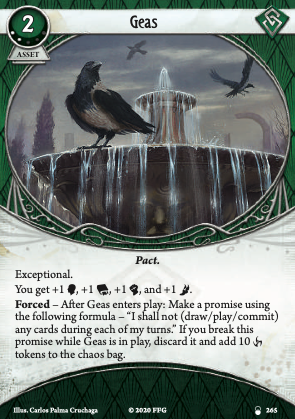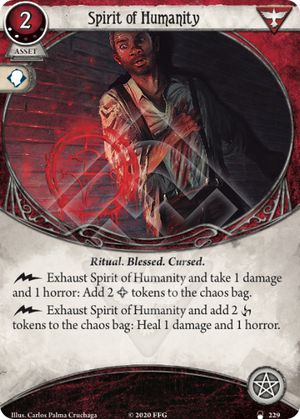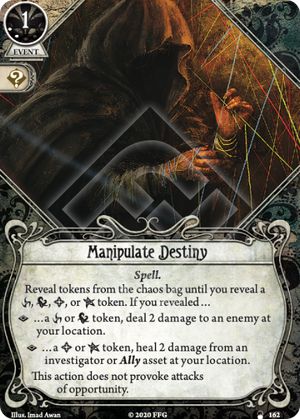
This worked quite nicely in a Winifred Habbamock deck. I had a small suite of necessary assets: Lucky Cigarette Case, Lockpicks, Knuckleduster (no ammo limitations means you won't need to replay it later), Delilah O'Rourke (good outlet for excess resources), and Haste. The rest of the deck was skill cards, Swift Reflexes (can be played during another investigator's turn, as an extra action source, while writing this up I realized it does not give me the ability to play assets outside my turn so it might not be worth running), and of course Geas.
The play style was standard Winifred, commit lots of skills and draw lots of cards. Her draw is so strong, you'll cycle your deck before long, at which point you'll have drawn your critical assets and can play Geas. I wouldn't call Geas, critical by any means, but she benefits from all the boosts. She regularly uses Intellect, Strength, and Agility, and the boosts push her closer to over-succeeding. Furthermore, despite her low Willpower, she is still quite competitive on that front due to the mass of wild icons in her deck.
I was regularly pushing 5 action turns between Haste and Quick Thinking with the ability to over-succeed on each action. It's unclear how critical Geas was, but the extra insurance certainly didn't hurt. The biggest issue I ran into was sanity problems, despite the ability to succeed on most Willpower checks, the fact that I couldn't replay my ally for more sanity soak meant I trended dangerously due to the combination of unavoidable treacheries and deck cycling. If I were to run it again, I'd likely want someone else in the group with the ability to heal sanity.




